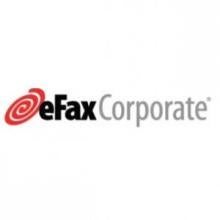Discovery refers the process by which documents and other material are sought, collected and examined, usually for use as legal evidence in a civil or criminal case.
Organizations that fail to produce discoverable material can face severe penalties, so it is critical that companies have a sufficient infrastructure in place to ensure discovery obligations are met.
For most types of discoverable material — such as emails, invoices, spreadsheets — deploying a document review platform can keep the discovery process quick and inexpensive. But other documents, such as hard copy faxes, can be trickier to manage.
Potential issues with legacy fax records
Traditional desktop fax machines are still commonplace in many office environments. Although fax records in most organizations are stored as hard copies, as far as discovery obligations are concerned, all faxes — whether sent or received — could potentially be discoverable material. Therefore, it is critical that organizations treat fax documents the same as any other types of documents.
But when a discovery request is issued, having to scour through mountains of paper fax records can be time-consuming, tedious and stressful for the staff involved. So how can the process be improved? When it comes to preparing for discovery, there are three routes you can take with regard to your fax review:
1. Take the risk with legacy fax
But by sticking with your legacy fax system, when a discovery request comes in, your organization may not be prepared and could descend into panic — panic that could be avoided.
Such an unmethodical and frantic data recovery process can not only cause huge disruption to staff productivity but could also result in a late response to a discovery request which could lead to regulatory penalties for your organization.
2. Implement a paper-to-electronic fax policy
Your second option is to implement a new ‘paper-to-electronic’ fax archival policy; each time an employee sends or receives a paper fax document, they must file the hard copy in a secure filing system and then scan and save an electronic copy of the fax making sure to include any metadata.
This will create an electronic library of all client-related faxes that is readily available in the event of discovery request.
While this solution avoids the chaos of combing through paper records, it is time-consuming, and its success relies entirely on the attention and care taken by staff members. As such, it is highly vulnerable to human error. One misfiled or incomplete document could jeopardize your discovery process.
3. Adopt a cloud-fax solution
The final option is to trade in your organization’s legacy faxing infrastructure for a fully hosted, cloud fax solution. This will allow your employees to send and receive faxes by email (or from a user-friendly platform), directly from their computers or even their mobile devices.
Many cloud fax systems will automatically save electronic records of faxes sent or received by your organization, along with metadata, in a secure storage base. Therefore, should your company receive a discovery request, you may be able to leverage a cloud fax system to quickly respond while minimizing disruption to your business operation.
Traditional paper-based fax isn't going away anytime soon, but its days are definitely numbered. For forward-thinking organizations that value efficiency, accuracy, and privacy there’s only one fax solution that is able to offer true peace of mind, and that’s cloud fax.




 />i
/>i

